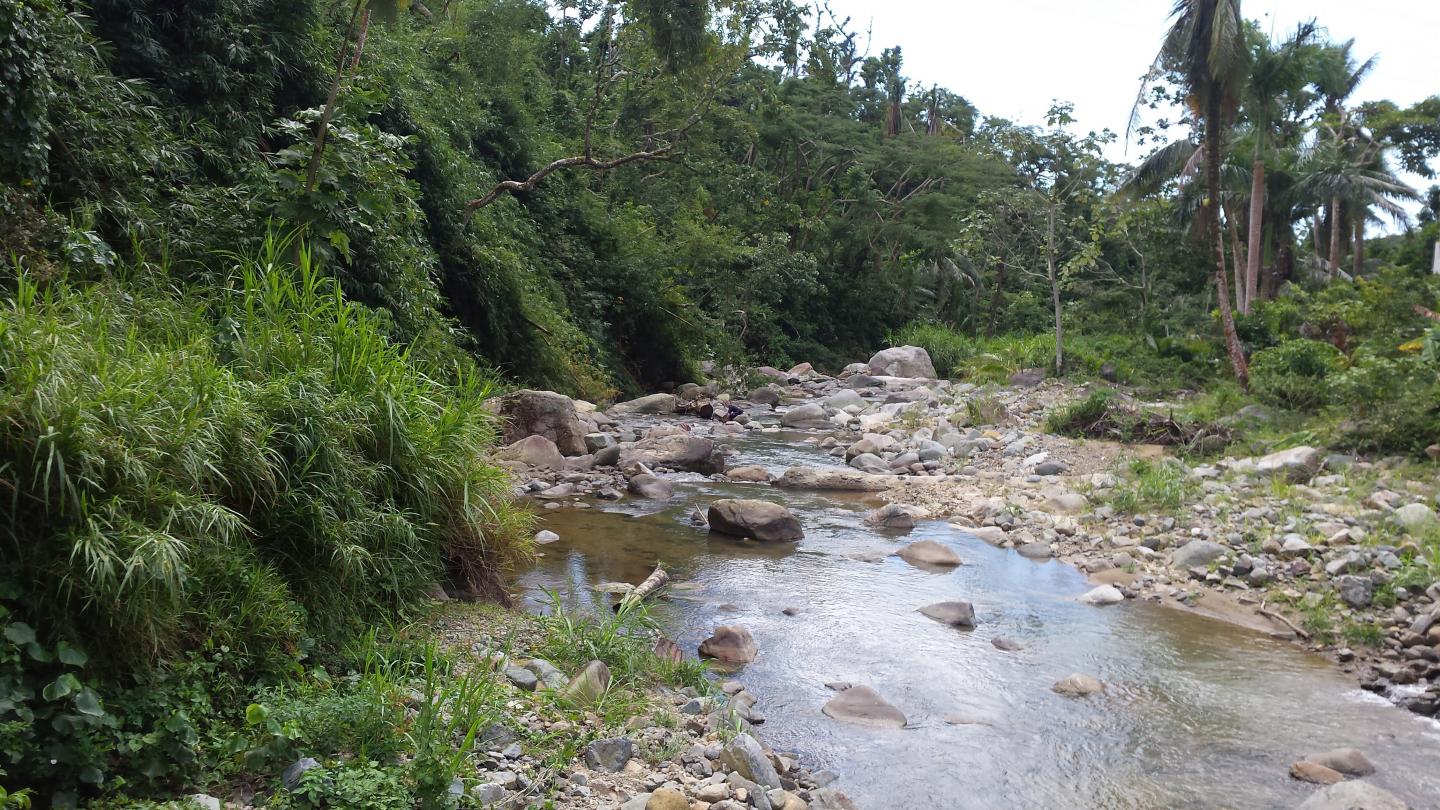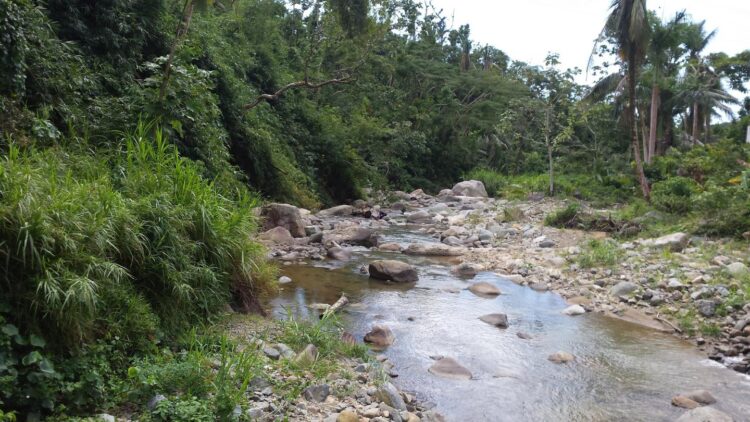
Credit: Maria Virginia Riquelme
In the aftermath of Hurricane Maria, a category 5 hurricane that made landfall in September 2017, flooding and power outages caused some wastewater treatment plants (WWTPs) to discharge raw sewage into waterways in Puerto Rico. Six months later, researchers monitored antibiotic resistance genes (ARGs) in three Puerto Rican watersheds, finding that the abundance and diversity of ARGs were highest downstream of WWTPs. They report their results in ACS’ Environmental Science & Technology.
Flooding can result in contamination of waterways with untreated human waste, and in turn, fecal and pathogenic bacteria. Previous research has linked this contamination to the emergence of antibiotic-resistant bacteria. To help monitor the spread of these potentially harmful microbes in waterways, Benjamin Davis, Maria Virginia Riquelme, Amy Pruden and colleagues wanted to detect and quantify bacterial genes that confer antibiotic resistance in three Puerto Rican watersheds post-Hurricane Maria.
The researchers used a method called shotgun metagenomics DNA sequencing to detect ARGs in river water samples from three watersheds, including samples upstream and downstream of three WWTPs. The researchers found that the abundance and diversity of total ARGs, in particular those that confer resistance to clinically important aminoglycoside and β-lactam antibiotics, were higher downstream of WWTPs compared with upstream. The total ARG abundance was higher in samples from an urban high-impact watershed than from the two other watersheds, which had less human influence. Also, two anthropogenic antibiotic resistance markers — DNA sequences associated with human impacts to the watershed — correlated with the abundance of a distinct set of ARGs. Although baseline levels of ARGs in these Puerto Rican watersheds prior to Hurricane Maria are unknown, surveillance methodologies like these could be used to assess future impacts of major storms on the spread of antibiotic resistance, the researchers say.
###
The authors acknowledge funding from the National Science Foundation and the U.S. Department of Agriculture.
The paper’s abstract will be available on November 18 at 8 a.m. Eastern time here: http://pubs.
The American Chemical Society (ACS) is a nonprofit organization chartered by the U.S. Congress. ACS’ mission is to advance the broader chemistry enterprise and its practitioners for the benefit of Earth and its people. The Society is a global leader in providing access to chemistry-related information and research through its multiple research solutions, peer-reviewed journals, scientific conferences, eBooks and weekly news periodical Chemical & Engineering News. ACS journals are among the most cited, most trusted and most read within the scientific literature; however, ACS itself does not conduct chemical research. As a specialist in scientific information solutions (including SciFinder® and STN®), its CAS division powers global research, discovery and innovation. ACS’ main offices are in Washington, D.C., and Columbus, Ohio.
To automatically receive news releases from the American Chemical Society, contact [email protected].
Follow us: Twitter | Facebook
Media Contact
Katie Cottingham
[email protected]





